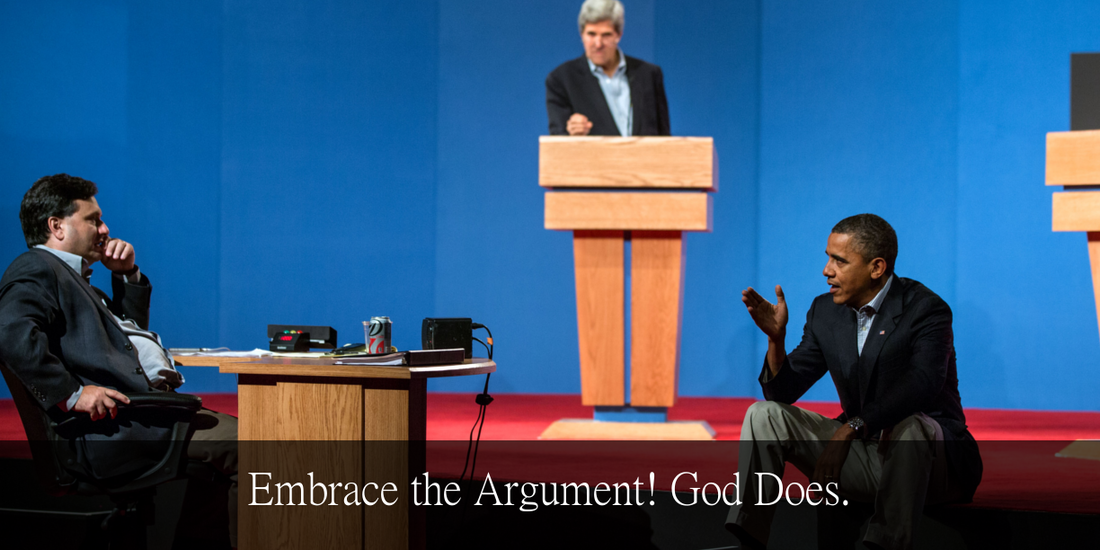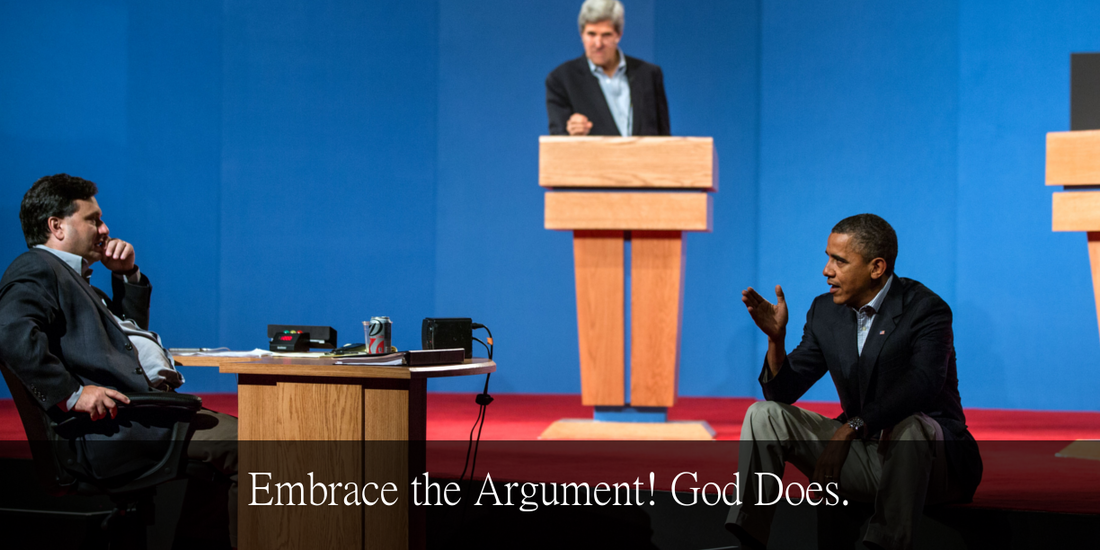Until, that is, Benghazi. And the four dead Americans. The administration had been pushing the narrative that the killings resulted from a spontaneous demonstration caused by some Mohammed-bashing YouTube video out of Southern California, such that when the madcap Muslim demonstration got out of hand, the demonstrators started letting fly with mortar shells, and four innocent Americans (including an Ambassador) ended up dead. The president’s U.N. Ambassador, a hapless Susan Rice, had been sent out to say as much on all the T.V. networks. The doubters said, Not so fast—this was no demonstration, but a terrorist attack from the bowels of Al Qaeda.
Now the question would be settled. Did the president have his ambassador claim the murders sprang from a spontaneous demonstration, or had the president admitted from the first that it was, in fact, terror? The argument was joined, Obama straight up against Romney. The debate suddenly looked less like a listing of talking points, and more like that 15th round of the Ali-Frazier Fight of the Century.
Romney jumped out of the box, contending that Obama was now claiming that his administration had actually admitted from the very first that the murders were acts of terror. According a Romney, Obama was completely reversing his argument:
MR: I—I think interesting the president just said something which—which is that on the day after the attack he went into the Rose Garden and said that this was an act of terror.
Obama doubled down.
BO: That's what I said.
Romney moves in to cement his advantage.
MR: You said in the Rose Garden the day after the attack, it was an act of terror? It was not a spontaneous demonstration, is that what you're saying?
Obama plays rope-a-dope, waiting for the debate to move to a different subject.
BO: Please proceed governor.
Romney keeps pounding.
MR: I want to make sure we get that for the record because it took the president 14 days before he called the attack in Benghazi an act of terror.
Obama parries (How long will this Romney guy keep pounding me on this one argument?).
BO: Get the transcript.
And there it would have lain. A simple argument by Romney that the administration had claimed the Americans were murdered by a spontaneous demonstration gone feral; an argument by Obama that he had admitted it was terror all along, and anyone who wanted to look deeper could scour the Internet for the transcripts.
There the argument would have lain. But then, What’s this, a third voice? Enter Candy Crowley, the moderator. She’s on no one’s side except that of having a fair and balanced debate. But now she enters herself not as referee between two parties, but an advocate for one.
CC: It—it—it—he [Obama] did in fact, sir. So let me—let me call it an act of terror.
A pummeled Obama, recognizing his chance to come off the ropes, seizes the life-line.
BO: Can you say that a little louder, Candy?
Crowley relishes the fight, too, and comes on even stronger for her man.
CC: He—he did call it an act of terror.
Then, almost as if seeing the thin facts run through her fingers, Crowley stretches for an escape route by admitting that maybe the administration’s narrative didn’t face up to the terror thing for quite some time (almost as if it’s dawning on her that she’s not supposed to be an advocate in this argument, but a referee).
CC: It did as well take—it did as well take two weeks or so for the whole idea there being a riot out there about this tape to come out. You [Romney] are correct about that.
And so the whole debate drifted to a merciful end, the two opponents limping off the stage, neither having scored a knockdown, no one knowing who to cheer as the winner, and a moderator having saved her man from a KO by becoming, if only for a moment, his advocate.
But this argument, this awkward conversation (for this is not the only place in human affairs we expect to see an argument)—are we somehow eerily comfortable with it? Is it, somehow, the way we understand the human conversation? We don’t, after all, react and walk away, as if it’s an alien mystery. We seem uncannily at home around the argument—like Brer Rabbit in the briars. A football coach arguing with the ref, a defense attorney arguing with the prosecutor, a child arguing with parent, an American Idol judge arguing with another judge. Where could we look in human affairs and find ourselves shocked to find the argument?
Another time, another location. This time, not 2012, but about 520 BC. Not at Hofstra, but at the Council in Heaven, which is known not for Shakespeare festivals, high SAT scores, and Bernie Madoff, but for the Lord Yahweh upon his Throne and the angels and archangels in array.
Yahweh is there, presiding; Joshua the priest is there, standing in for the sinner (he’s guilty as sin and dressed in the filthy garments of shame); the Angel of the Lord is there; and another angel, the fallen one, Satan, stands at his post, ready to press the case against every sinner.
Satan starts it off by laying the accusation: Joshua is guilty as sin, and no one at the Throne of Heaven dare deny it.
Yahweh upon the throne, he’s the judge, the moderator, we might say. But wait, he’s not sitting as an impartial judge. Instead, he enters himself into the conversation as advocate, and advocate for the defendant (Joshua, the sinner) at that.
Yahweh: “The Lord rebuke you, O Satan!” (Zechariah 3)
If Satan has his accusation ripped from his hands, what becomes of the argument?
Then the voice of the Angel of the Lord:
“Remove the filthy garments from [Joshua the sinner].”
And, to Joshua,
“Behold, I have taken your sin from you and I clothe you in regal robes.”
Is this the way we’re to understand our God, as in an argument? Especially one with regard to the sinner? Is it the way we’re to understand our conversations with each other?
Perhaps there’s a profound reason why we’re not surprised by the ongoing argument around us here on Earth.
Our God, after all, is a conversing God. Even before anything is created, there is the conversation—the Father speaks to the Son, sending him forth, and there is light, and there is water, and land, and all the rest: Creation. (See Genesis 1-2, John 1) Creation is accomplished by a conversation between persons! The Holy Spirit is there, too, swooping over creation—the image is, what, a dove? The Holy Spirit is delivering Words, creating life. The words are the Father’s. He gives them to his Son. His Son speaks them—a creative conversation. The Holy Spirit is in on the deliberation. By the three persons in deliberation, creation is brought forth. And in the midst of this thriving creation, the Three Persons set their image. It’s man and woman. They speak to one another—again, a gift from their God who wants, always, a conversation of love and life, of creation and procreation.
But another comes into the conversation, which wouldn’t have been a problem, but he enters with his own words, hissing, Did God really say? It’s Satan entering the Genesis conversation, the same Satan standing as the sinner’s prosecutor at the Council of Heaven in Zechariah 3. Doubt is now reigns in the conversation, and what used to be healthy, creative conversation is now dangerously a conversation of deceit and despair.
It started as conversation—healthy, life-giving, creative. Can we understand our humanity apart from the conversation? We were the image of God on Earth, created by the conversation of the Father, Son, and Holy Spirit. We, his image on Earth, would enjoy his creation, and extol and take care of it, and we would procreate, all in this setting of God-given conversation.
The conversation turned into argument when Satan introduced words not from God, and that argument would be the way we would from then on understand our humanity.
But then--Who could’ve seen this coming?—God came down and joined the argument. He was judge, the one moderating the courtroom, and that was bad news to the sinner, who wanted to play rope-a-dope, hoping to sneak out of the courtroom during a break. But the judge repositioned himself. The sinner looks at the bench only to find the judge is now his number one defender, his advocate. And the Angel of the Lord, the One we thought would be sent forth as a slayer of the unrighteous (he had been in the past), is now dressing the sinner in clean robes.
Maybe there’s a reason why we understand things on Earth according to the argument, why we’re not surprised to see the lawyer arguing with the judge, the governor arguing with the president, even the husband with the wife, why we’re no more surprised than if we were to see a rabbit running in briars. As God’s Image on Earth, we understand everything as a God-given conversation. And when we bring sin into to that conversation, everything now becomes argument. And now, recreated as God’s Image by the Gospel (the new creation of the man of faith), we understand how God enters with his voice of Gospel, cleansing the sinner and creating the new life. So, embrace the argument. By your voice (you are, after all, the new man of faith, the Image of God), God is speaking his Word into our world. It’s the Word of life. And that’s not a bad argument.
Warren Graff
Grace Lutheran Church, Albuquerque




 RSS Feed
RSS Feed
